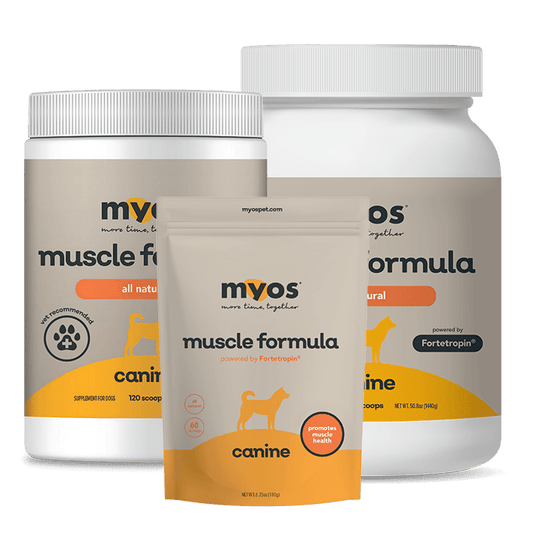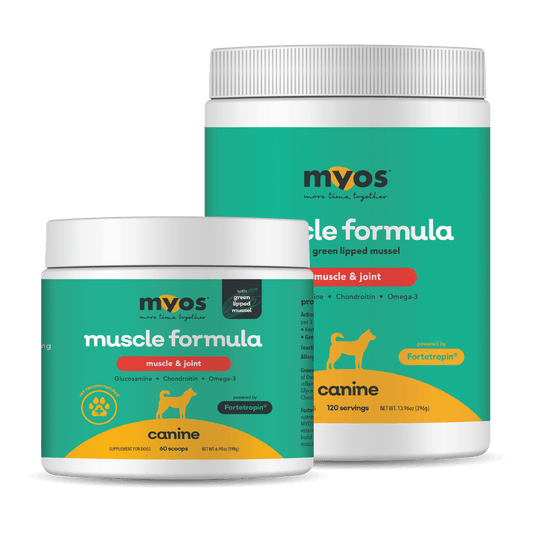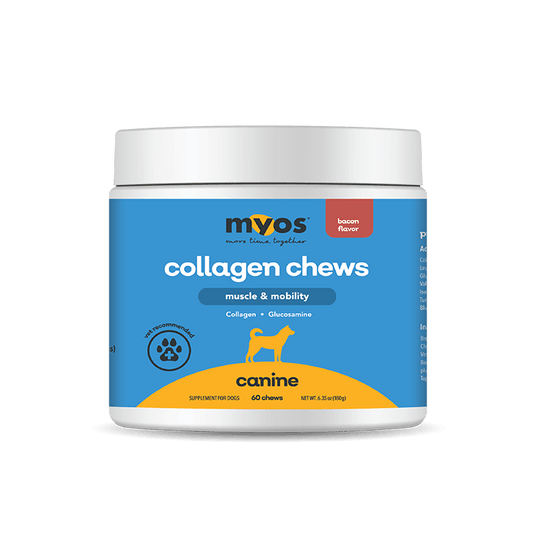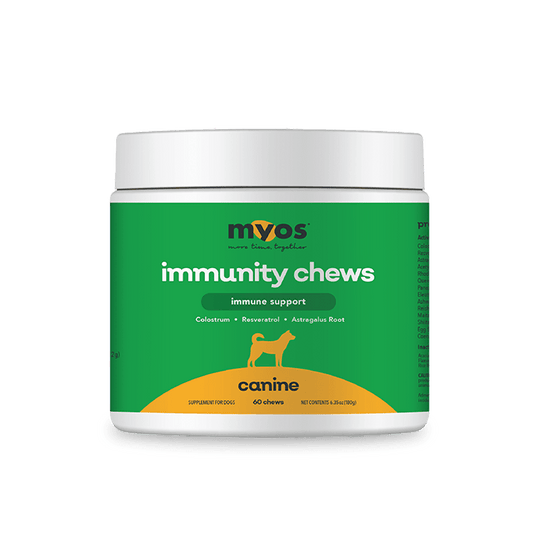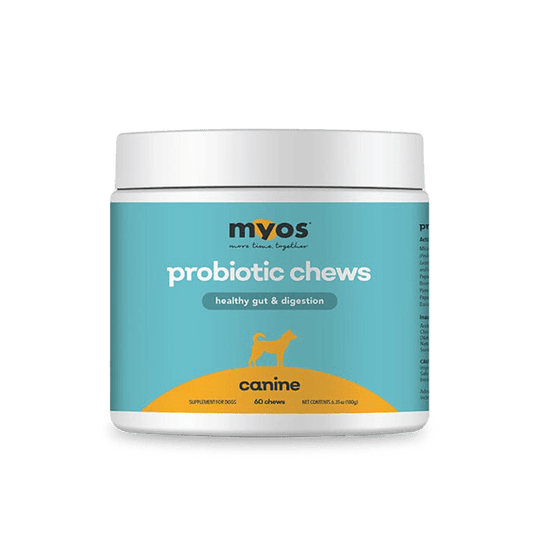Carbohydrates for Dogs: Good or Bad?
Food. It’s the fuel that runs our bodies...and our pets' bodies. But, for that fuel to be efficient, it needs to be nourishing. In today’s toxic world, our pets can feel overloaded and tired as a result of nutrient deficiencies without us even realizing it.
Nutrient-dense foods are what help them function better. What kind of foods are best? And what about carbohydrates for dogs? Do all carbs need to be avoided?

With your dog’s best interest in mind, we’ve put together a three-part series reviewing the three macronutrients necessary for your dog (carbohydrates, proteins, and fats) that all dog parents should know about.
Natural Sources of Carbohydrates for Dogs
A healthy diet is one of the most important investments you can make to provide energy and vitality for your pet. Whole-food carbohydrate sources, such as fruits, vegetables, nuts, and grains are filled with enzymes, minerals, vitamins, and other vital nutrients that your dog craves.

Whole Grains
Although grain-free dog food has become a very popular trend for today’s pet parents, it may not be the right option for every dog. In fact, some studies even conclude these kinds of “boutique” diets as risky.
It’s important to note that what works for one dog may not work for your dog. In most cases, whole grains (if they contain the entire grain kernel) are good, quality carbohydrate sources. Packed with fiber, vitamin B, and important minerals like magnesium, iron, and selenium, grains aren’t always the enemy.
The problem often arises when grains are mass-produced and packed with highly-processed kibble. The result? Milled “refined” grains that have been stripped of their nutritious fiber, iron, and vitamins. Therefore, choosing the right source is extremely important. Some high-quality examples include whole wheat, bulgur, oatmeal, cornmeal, brown rice, buckwheat, barley, rye, amaranth, millet, and quinoa.

Vegetable Diet for Dogs
If you choose to feed grain-free meals to your dog, vegetables are also an excellent source of carbohydrates. But, dogs tend to be a lot like little kids when it comes to vegetables. Just like kids, some dogs might need a little enticement to get started on them.
Cooked potatoes and sweet potatoes are a great way to add carbohydrates to your dog’s diet, with the added benefit of minerals and fiber. If you opt for cruciferous vegetables, such as broccoli, cauliflower, and cabbage, consider steaming or boiling them to make them easier to digest.
As a side note, never feed your dog onions or garlic as they can be toxic in all forms: cooked, raw, and even powder.

Dog-Friendly Fruit
The earlier you can introduce fruit to your dog, the easier it will be for him to love it. Some reliable fruit favorites for dogs tend to be apples, bananas, cantaloupe, and watermelon. Increasing phytonutrients via superfoods, such as blueberries, can help them ward off disease and keep that fuzzy body functioning optimally.
Teaching your dog new tricks? Opt for antioxidant-rich blueberries instead of store-bought treats.
If your pet seems uncertain at first, don’t give up; simply try serving the fruit another way. For example, try peeling off the skin of the apple or put the banana in a fun recipe (see below).
Just be aware, in the same way that chocolate is toxic to dogs, some fruits are too. Steer clear of fruits such as cherries, grapes, and avocados, which can be potentially toxic to dogs.
“Gone Banana for MYOS” Dog Treat Recipe
Bananas make a quick snack or meal for your dog. Try this recipe at home:
“Gone Banana for MYOS”
-
1 banana
-
¼ cup unsweetened yogurt
Directions:
-
Peel and slice banana
-
In a bowl, mix sliced banana and unsweetened yogurt
-
Sprinkle with Fortetropin
-
Serve to Spot!
Pro Tip! Make sure you use a bowl that you don’t mind him licking clean; he’ll want to get every last drop!
What’s Good For You Is Good for Your Dog
It’s true. What’s good for you is (in most cases) likely to be good for your dog. Give your dog the benefits of a natural diet that contains as many immune-boosting nutrients as possible while reducing his consumption of toxic ingredients.
Your dog’s longevity depends on what you put in his dish. Give him the best.
Find out more about MYOS Canine Muscle Formula, powered by Fortetropin for your dog.
Your dog's nutrition is important for a healthy & happy life. But, keep in mind that when you introduce any new food into your pet’s diet, it may cause an upset stomach. Pet owners should always gradually introduce any new food to your pet’s diet and be cautious to only introduce one new food at a time to help identify any adverse reactions.

